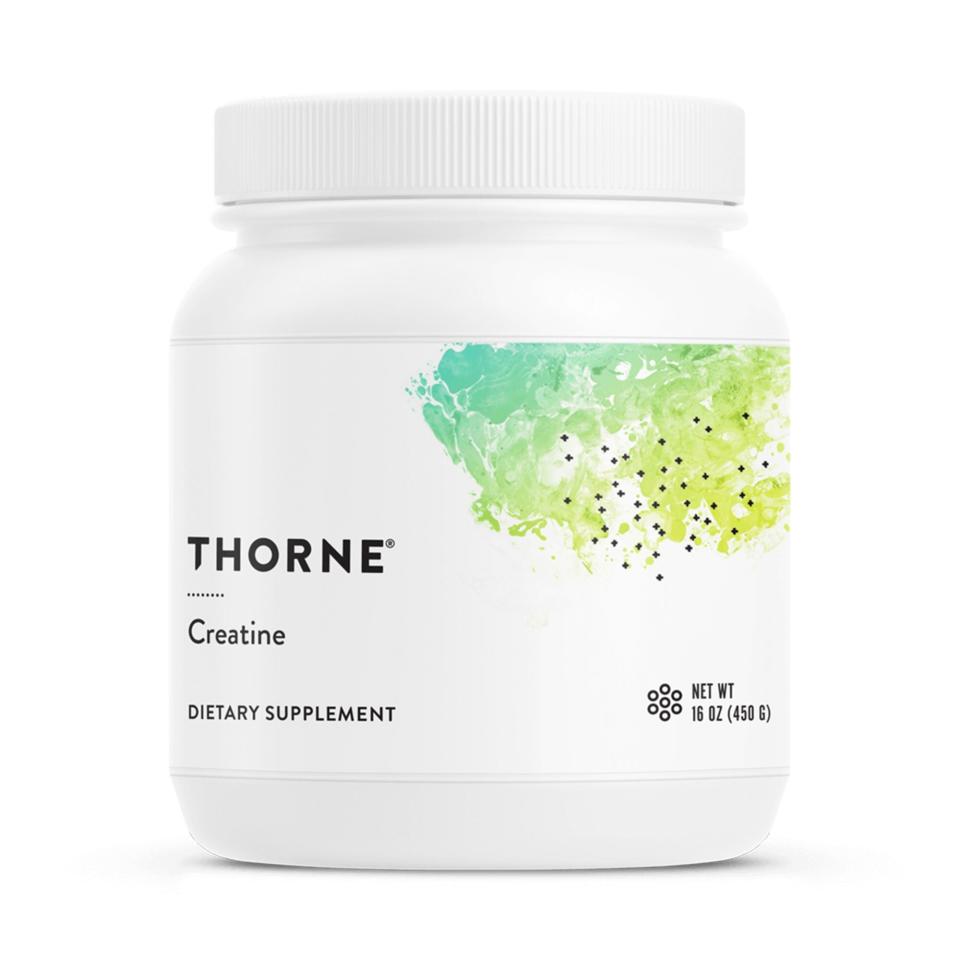The 10 Best Vitamins and Nutrients That Help Boost Muscle Growth
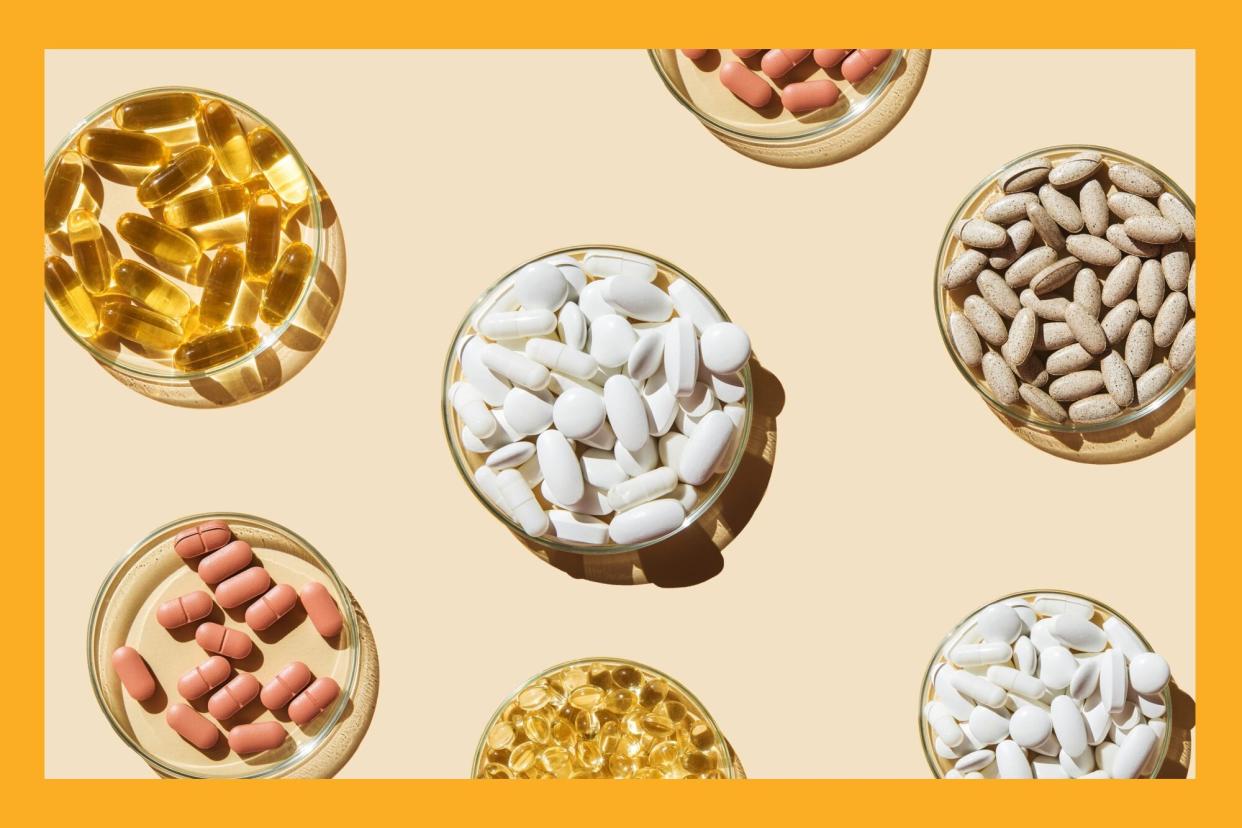
Getty Images
When you're trying to get stronger (and more importantly: feel stronger), there's no shortage of advice you can follow. From how you move to how your fuel your body, the world is full of opinions on how to achieve your individual fitness goals. Admittedly, muscle-building supplements are among the most confusing of these topics.
To help, here, a dietitian names which vitamins for muscle growth are actually legit — so you can cut through the noise and start crushing your deadlifts, stat.
Why Nutrition Matters for Building Muscle
You probably know you need protein to build muscle, but that's far from all.
"Muscle growth depends on amino acids, the building blocks of protein; however, just eating protein isn't enough," says Amy Shaprio, R.D., a New York City-based dietitian with Real Nutrition. "Fueling your body with carbohydrates and healthy fats to allow for energy and optimal performance is essential. The vitamins and minerals in a wide variety of whole foods help with neurotransmitters, cellular energy, muscle development, and then growth." (ICYWW: Did you know sleep helps boost muscle growth, too?)
In a perfect world, everyone would all be able to reap the muscle growth benefits of vitamins and minerals from food alone, but for some, supplements for muscle growth can be a beneficial addition to a healthy diet. Gaining strength is still contingent on checking off your daily workout, too — so be wary of marketing that promises muscle without strength training, says Shapiro.
"For optimal results, you need to eat well and exercise regularly to get the results you want," she says. "Supplements are secondary. Some supplements max out [providing more than your daily needs of a nutrient] and your body can not absorb high quantities at once. Make sure you do the research on optimal amounts so you save money and do not overload your system."
10 Vitamins and Nutrients for Muscle Growth
Below, Shapiro outlines the most important vitamins for muscle growth, as well as offers a few brands she trusts and recommends.
Just remember: It's always a good idea to double-check with your physician before adding muscle growth supplements to your diet, since supplements aren't regulated by the Food and Drug Administration and can also interact with your prescription meds.
Omega-3 fatty acids
"Research shows that omega-3s may increase muscle gains during activity and exercise," says Shapiro. If you're looking for whole food sources of omega-3s, try eating salmon, flax seeds, and olive oil. Plus, when you eat fish like salmon, you're also getting a healthy dose of muscle-building protein — a win-win.
Although there's no official daily recommendation for omega-3 intake, a good rule of thumb is to aim to eat fish at least twice a week, and don't take more than 3g of omega-3s per day in supplements. If you don't eat fish or don't eat it weekly, you may want to consider a supplement.
B Vitamins
In case you didn't know, B vitamins are essential to basically any workout goal, making them a key vitamin for muscle growth. They're needed for metabolism and cellular energy, and "they help your body to function properly during physical activity to allow for muscle development," says Shapiro. Low levels of B have been shown to hinder athletic performance, so make sure you're adding sunflower seeds, shellfish, and other vitamin B-rich foods to your plate. Each person's daily needs for B vitamins vary, but the essential B vitamins are considered vitamin B1, B2,B3, B5, B6, B7 (biotin), and B9 (folate).
Protein
Here comes a classic best supplement for muscle growth: protein. You need about 0.8g of protein per kilogram of body weight, which comes out to about 50-60g for someone who weighs 150 pounds. For reference, one cup of chopped chicken breast contains about 43g of protein, and two eggs contain 12g of protein.
If you're not hitting your protein needs through food, you can supplement with a protein powder, like whey protein for example. "[Whey protein is] rich in amino acids including leucine, which is important for the synthesis of muscle protein. It is also absorbed and utilized very quickly by the body compared to other protein sources," says Shapiro. Whey is found naturally in milk and is separated from milk when making cheese, and from there it can be processed into supplements. (More: Could Vegan Protein Be Just As Effective As Whey for Building Muscle?)
Leucine
Meet leucine, an amino acid that's absolutely essential to muscle growth and may help increase muscle growth. FYI, there are nine essential amino acids (the smaller molecules that make up proteins), which your body doesn't mat itself — meaning, you need to eat them through food or supplement them. Normally, leucine found in foods like soybeans, peanuts, eggs, and oats — but supplements such as branched-chain amino acids (BCAAs) are one way to consume a little more of it.
Iron
Iron helps to transport oxygen in the blood, which provides optimal energy to your body during workouts, says Shapiro. Food-based sources of iron include dairy, red meat, poultry, and seafood. And if you're plant-based, you can also look for iron sources in beans, lentils, spinach, and dark chocolate. Adult women need about 18mg of iron per day. For reference, you can get about 6mg from a 4oz. of tofu or one cup of cooked lentils.
Magnesium
Magnesium is a mineral that plays an important role in the function of your muscles and nerves, says Shapiro. Bonus: It will also help your muscles repair themselves. (Reminder: When you work out, you're tearing your muscles. When your muscles repair themselves to be stronger, that's when they grow.) If you're looking to consume more magnesium, a key vitamin for muscle growth, try eating foods like green, leafy vegetables, nuts, seeds, and whole grains. Aim for 400-420mg of magnesium per day from food or supplementation. For reference, a serving of oatmeal contains 61mg of magnesium, and 1 cup of spinach has 24mg of magnesium.
Calcium
You've probably been hearing that the mineral calcium is good for your bones since the OG "Got milk?" commercials — but it's important to remember that well into adulthood, says Shapiro. "While essential for bone growth, calcium also plays an important role in muscle contractions and therefore muscle growth," she says. "Most adults need 1,000 to 1,300mg daily, which can be consumed through dairy foods or dark green leafy vegetables."
Vitamin D
"A deficiency in this nutrient — which many people struggle with — is linked to poor muscle health and development," says Shapiro. "I recommend getting out into the sunshine every day." FYI, 15 minutes of sun exposure per day is usually enough, but if you need more vitamin D or you can't get out in the sun, "I recommend supplementing with between 2,500 and 6,000 IU depending on your current status [of vitamin D levels]," she says. Yes, your run out in the sunshine totally counts, but you can get it from food (such as salmon or fortified dairy products) or supplements. (Related: The Low Vitamin D Symptoms Everyone Should Know About)
Creatine
Another muscle-building supplement classic, creatine helps you max out every workout so you can start getting stronger, faster. Creatine is a type of amino acid that actually occurs naturally in your body. Some foods like meat and seafood contain small amounts of creatine, but many people prefer to supplement it to get more.
"It does not directly assist with the growth of muscles," says Shapiro. "It does, however, increase the intensity muscles can work at which, in turn, promotes growth. Basically, it allows you to work hard, increase your reps and performance and therefore increase muscle size." (How, exactly? It's a bit complicated. Read more about creatine supplements here.)
Zinc
Zinc is a mineral particularly helpful for boosting your immune system and assisting with muscle recovery, says Shapiro. "It also promotes muscle protein synthesis (growth)," she adds. "Adults need about 8 to 13mg of zinc per day, and can easily meet their needs by eating red meat or even oysters."
Expert-Vetted Supplements for Muscle Growth
Nordic Naturals Ultimate Omega
Shapiro's go-to omega-3 supplement supports gut, brain, eye, and immune health — and your muscles, of course. Plus, the omega supplement is made in the triglyceride form to help your body better absorb the muscle-assisting benefits of omega-3s. (And the company promises no fish burps.)
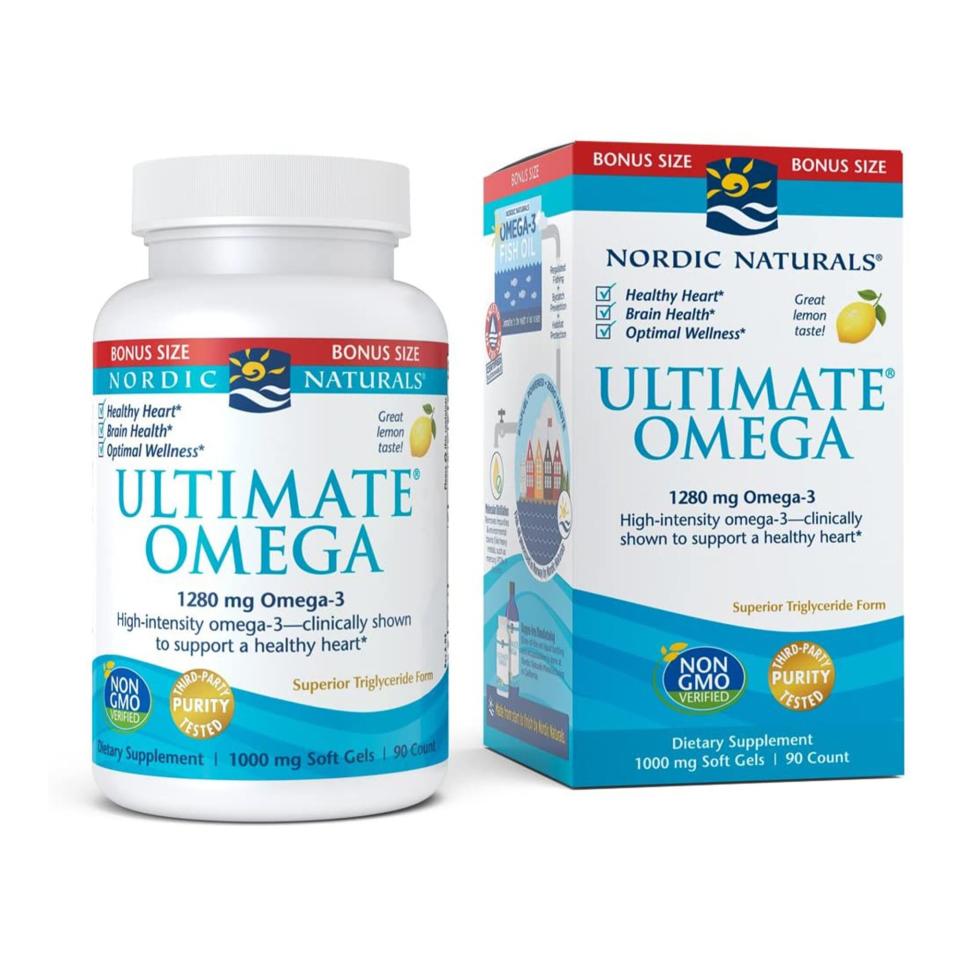
Garden of Life Vitamin B Complex
Get all your Bs in one go with this robust supplement that contains vitamins B1, B2, B3, B5, B6, B12, folate, and biotin to support your body's metabolic processes. Fun fact: the folate in this supplement will help the other Bs absorb properly, according to Shapiro.
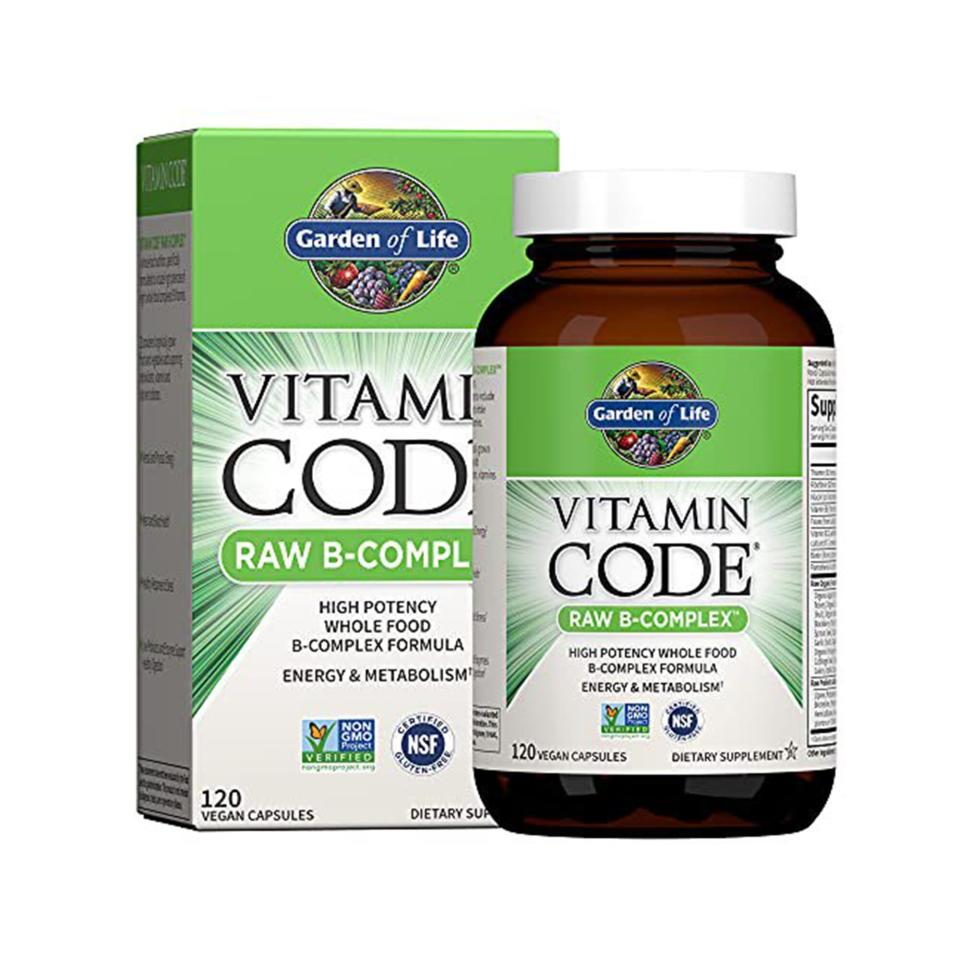
NOW Sports L-Leucine Powder
Shapiro recommends NOW's supplement to anyone who's looking to add a little extra leucine to their routine to help boost muscle. Blend it into smoothies or your pre-workout shake.

NOW Sports Whey Protein Isolate
Shapiro loves this whey because it's third-party tested, grass fed, and contains 22g of protein per serving. As discussed earlier, whey protein is one of the best supplements for muscle growth since it contains amino acids that help with the synthesis of muscle protein.
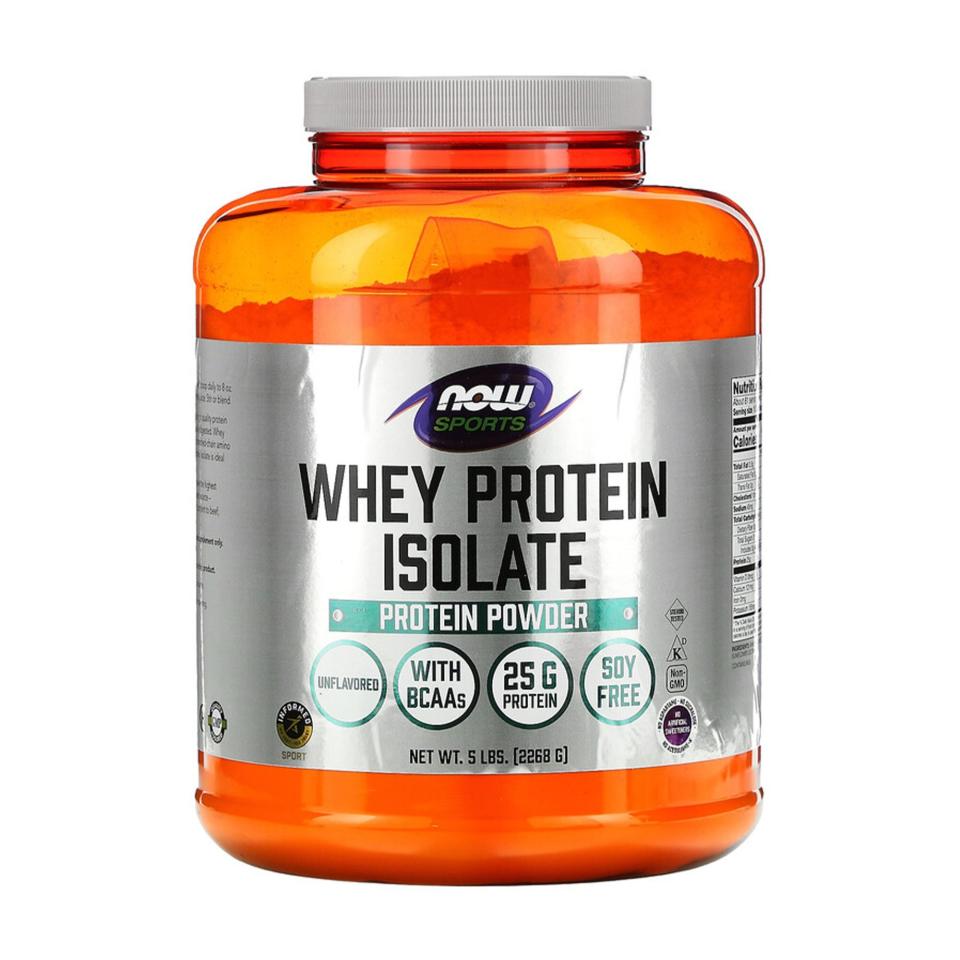
Bluebonnet Nutrition Vitamin D3
These 5000 IU Vitamin D capsules pack all the daily D3 you need to support your body and help your muscles develop properly. Just make sure you're eating a fat (like avocado or butter) with your D3 to optimize absorption for this top vitamin for muscle growth.

Thorne Creatine
This best supplement for muscle growth supports cellular energy production and offers you the energy you need to crush your workout from start to finish. You also might feel a little brain boost, since creatine has been linked with better cognitive function.
